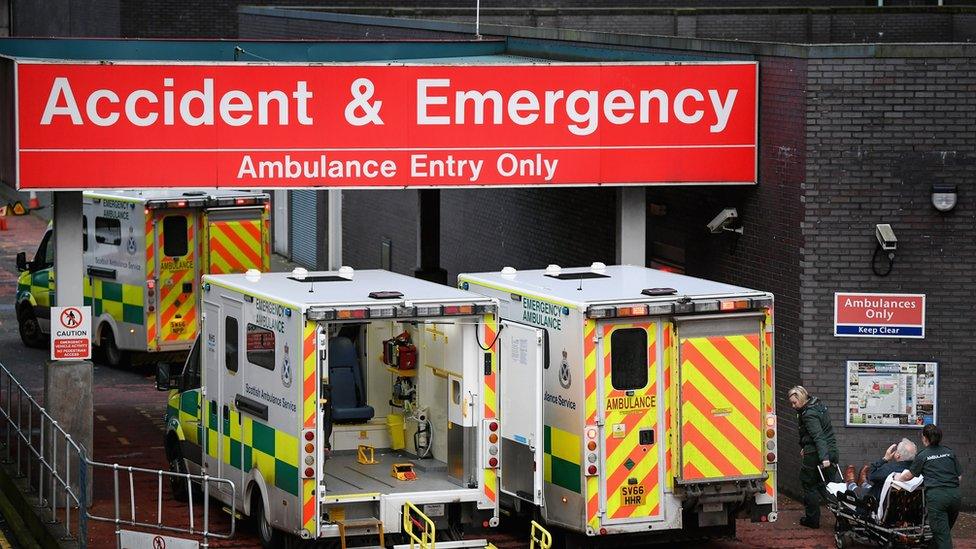Jeane Freeman: 'Don't ignore serious illness' as Scots continue to avoid A&E
- Published

People are being warned against ignoring signs of serious illness after figures for attendance to hospital Accident and Emergency departments plummeted.
Before the coronavirus lockdown, weekly A&E attendance rates had been about 25,000.
The latest that, in the week ending 5 April, those dropped to 11,263 patients.
The health secretary said it was "vital" people had issues checked.
It comes after A&E weekly attendees dropped to a record low of 11,020 in the first week of the lockdown.
The Scottish government and health boards have been urging people to attend A&E only if their medical situation was life-threatening.
Health Secretary Jeane Freeman previously said people staying away from A&E were "helping to free-up vital resources".
However, concerns have emerged that people could be neglecting potentially serious health issues as a result.
Ms Freeman said: "While members of the public are continuing to listen to advice and only going to A&E if illnesses are immediate or life threatening, I would like to remind people not to ignore early warning signs of serious conditions.
"If you have new symptoms then it's vital you get this checked out either by contacting your GP, or if symptoms are urgent by attending A&E.
"We are working closely with health boards and partnerships to ensure robust plans are in place to strengthen capacity and minimise the impact of COVID-19 across the health system."
Despite the drop, the Scottish government's target of 95% of emergency cases to be completed within four hours of arrival was missed for the second week of lockdown.
Figures showed 92.7% of people were seen and treated within four hours.
Ms Freeman praised the "continued hard work and dedication" of NHS staff.
A SIMPLE GUIDE: How do I protect myself?
AVOIDING CONTACT: The rules on self-isolation and exercise
LOOK-UP TOOL: Check cases in your area
MAPS AND CHARTS: Visual guide to the outbreak
- Published7 April 2020